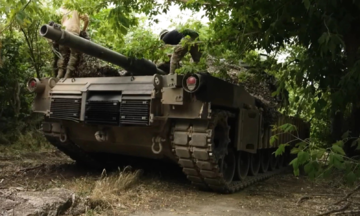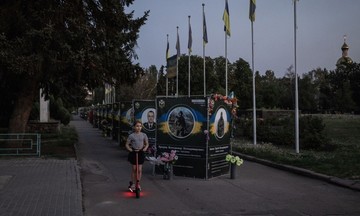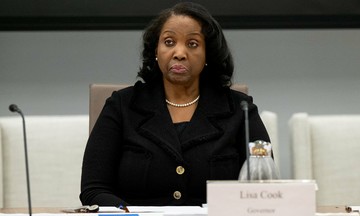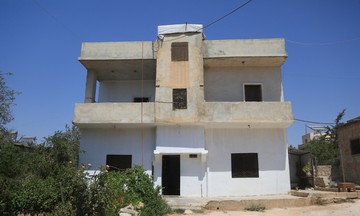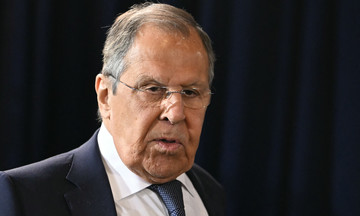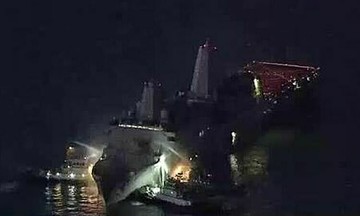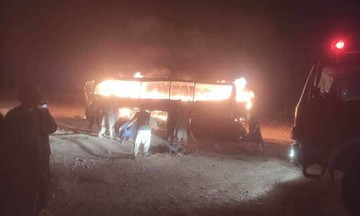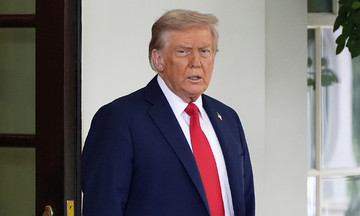Thailand's acting prime minister Phumtham Wechayachai and Cambodian prime minister Hun Manet met in Putrajaya, Malaysia on 28/7 to negotiate an end to the border conflict. Following the talks, both countries agreed to an unconditional ceasefire starting at midnight on 29/7, ending 5 days of clashes.
"This is a crucial first step toward de-escalation and restoring peace. Both sides also agreed to resume direct dialogue at the prime minister, foreign minister, and defense minister levels," Malaysian prime minister Anwar Ibrahim announced at a press conference.
Experts attribute the successful mediation to several factors, including international pressure for dialogue and Malaysia's role as ASEAN chair, showcasing the bloc's effectiveness in regional dispute resolution.
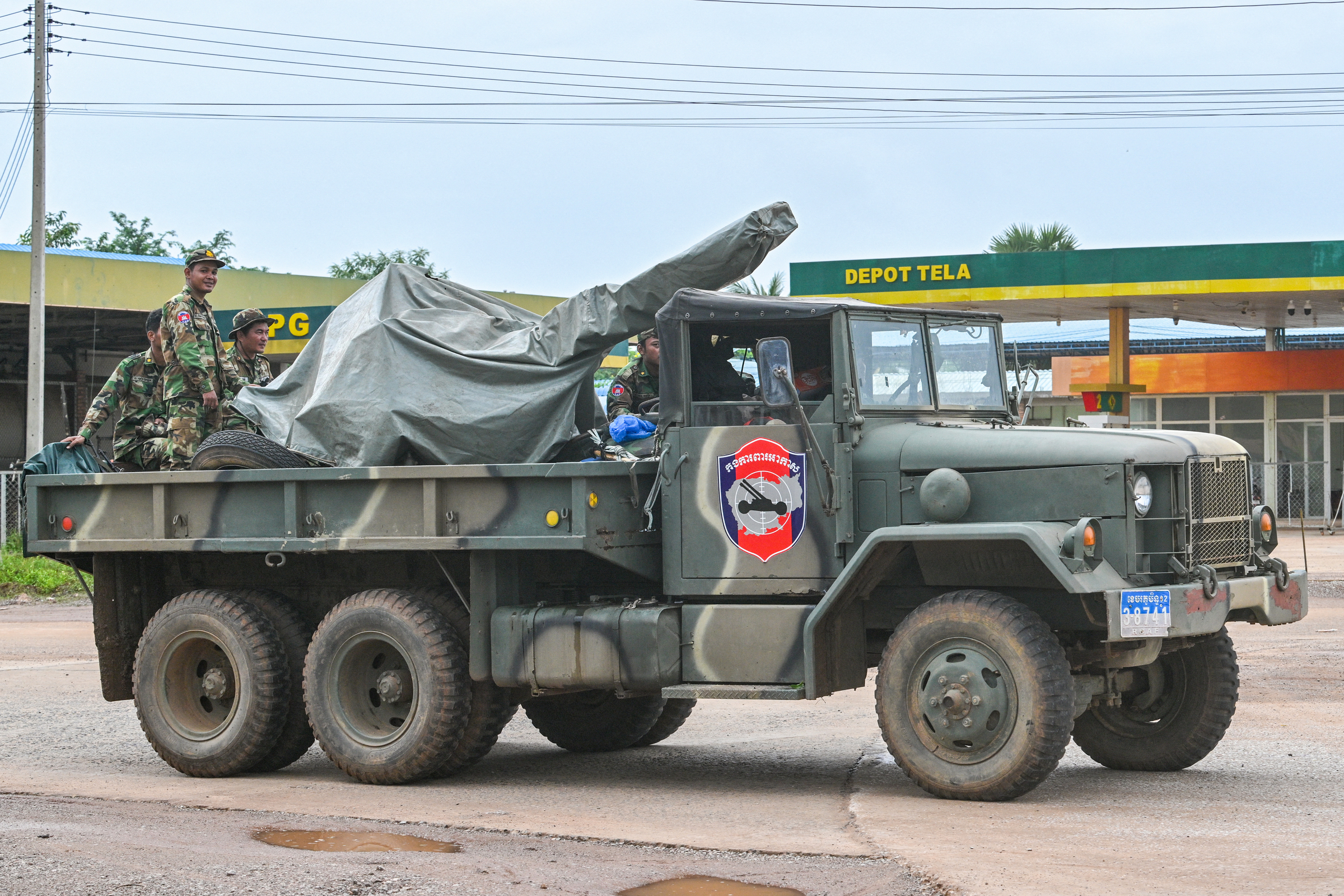 |
Cambodian anti-aircraft artillery in Oddar Meanchey province on 26/7. Photo: AFP |
Cambodian anti-aircraft artillery in Oddar Meanchey province on 26/7. Photo: AFP
Fighting erupted near the Ta Moan Thom temple on the morning of 24/7 and spread along the border. This was the most serious clash between the two neighbors in over 10 years.
ASEAN nations immediately expressed concern and urged a peaceful resolution based on international law.
As ASEAN chair, Malaysia actively pursued diplomatic solutions. On 25/7, Mr. Anwar spoke with Mr. Phumtham and Mr. Hun Manet, urging an immediate, unconditional ceasefire and dialogue.
This faced challenges, as Cambodia initially sought UN Security Council intervention, while Thailand preferred bilateral talks.
After the Security Council failed to agree on a ceasefire resolution, ASEAN's mediation role became prominent, especially after president Donald Trump called the Cambodian and Thai leaders, warning of halted trade talks if the conflict continued.
Dr. Julia Roknifard, senior lecturer at Taylor's University's Faculty of Law and Governance, believes Mr. Trump's intervention accelerated the process proposed by Mr. Anwar, emphasizing ASEAN's central role.
"Initially, both countries were reluctant to involve ASEAN, preferring bilateral solutions. Yet, ASEAN proved effective in enforcing order, and they complied," Ms. Roknifard told Bernama.
Amidst the conflict and distrust, Malaysia's standing within ASEAN was crucial. As a founding member with a tradition of neutrality and constructive engagement, Malaysia's lack of direct disputes with either country reduced concerns about bias.
"These factors made Malaysia a suitable choice for peaceful resolution," independent political analyst Ahmad Martadha Mohamed said.
"The ASEAN chairmanship provided Malaysia with additional leverage, which it used effectively," said professor Khoo Ying Hooi of the University of Malaya's Department of International and Strategic Studies. "Trust was built as Malaysia demonstrated its willingness to take diplomatic risks."
Malaysia also coordinated with the US and China to increase multilateral pressure, encouraging a ceasefire. Both countries have significant economic and strategic interests with Thailand and Cambodia.
Leveraging this, the US joined Malaysia in organizing the talks, while China observed. US ambassador to Malaysia Edgard Kagan and his Chinese counterpart Ouyang Yujing participated in the discussions.
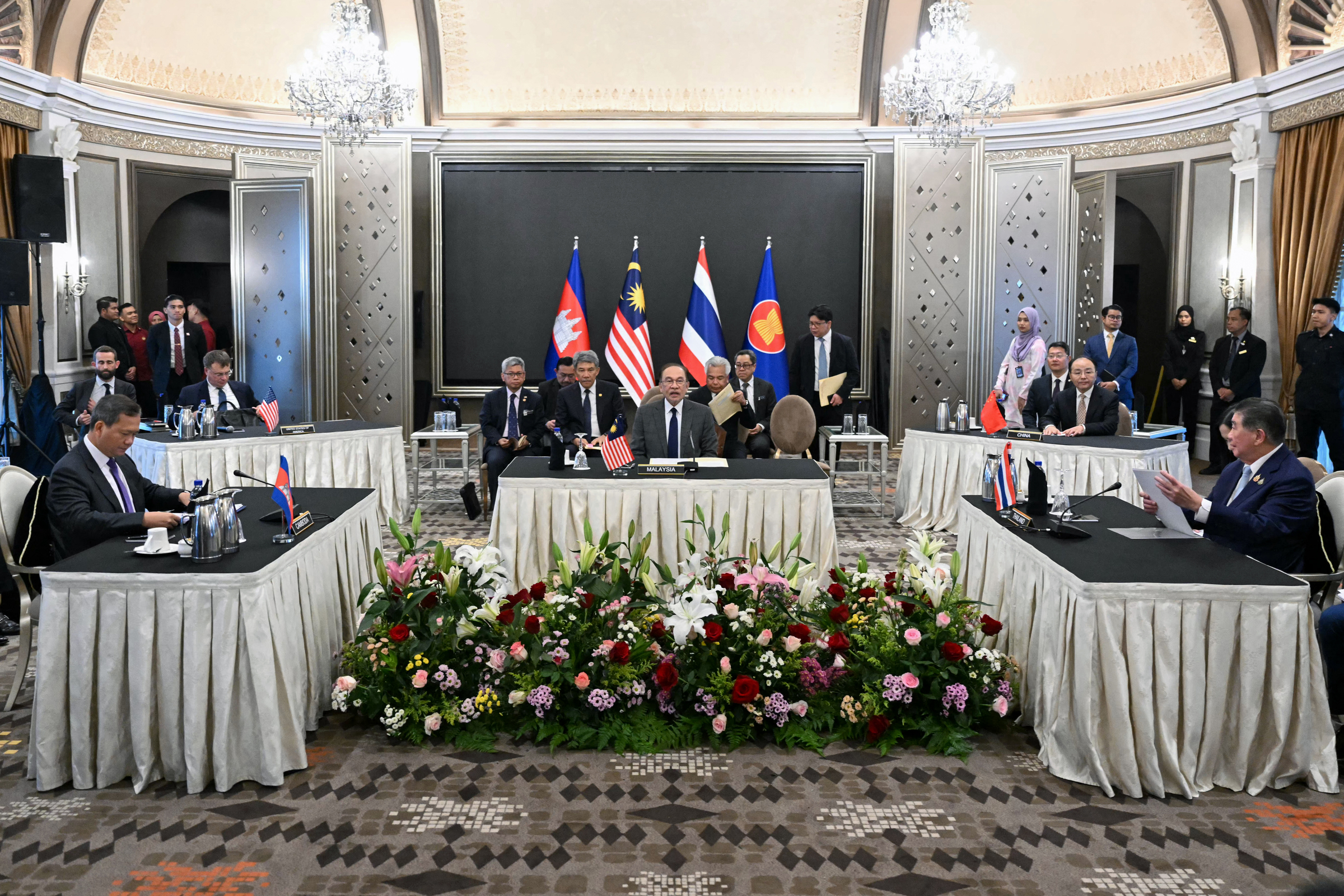 |
Cambodian prime minister Hun Manet (left) and acting Thai prime minister Phumtham Wechayachai in Putrajaya, Malaysia, on 28/7. Photo: AFP |
Cambodian prime minister Hun Manet (left) and acting Thai prime minister Phumtham Wechayachai in Putrajaya, Malaysia, on 28/7. Photo: AFP
The presence of US and Chinese diplomats ensured the weight of the mediation effort, serving as a crucial international guarantee for de-escalation and building confidence in the agreement's implementation.
Experts also point to the significant economic and social costs of continued conflict as another motivator. The 5 days of fighting resulted in 38 deaths (25 Thai, 13 Cambodian) and displaced hundreds of thousands.
Thai deputy prime minister and finance minister Pichai Chunhavajira reported preliminary losses of 10 billion baht (about 307 million USD) during the conflict, including evacuation and property damage, excluding trade impacts.
Cambodia hasn't released damage estimates, but over 100,000 people were evacuated, and tourism and the economy suffered as temples in the conflict zone were affected. Many countries issued travel advisories against visiting the area.
Dr. Aat Pisanwanich, director of the University of the Thai Chamber of Commerce's (UTCC) International Trade Studies Center, estimated that a month-long conflict could cost Bangkok and Phnom Penh over 60 billion baht (about 1.86 billion USD), with potentially higher losses if the situation escalated.
Mr. Anwar emphasized the Putrajaya talks demonstrated a "shared commitment" to international law, peaceful coexistence, and international cooperation for a just and lasting solution.
"Malaysia's leadership as ASEAN chair was key in mediating between Thailand and Cambodia. Kuala Lumpur also leveraged its relationships with Beijing and Washington, ASEAN partners, to reinforce confidence in the ceasefire's feasibility," Mustafa Izzuddin, an international analyst at Solaris Strategies Singapore, told the Strait Times, calling it a significant ASEAN success.
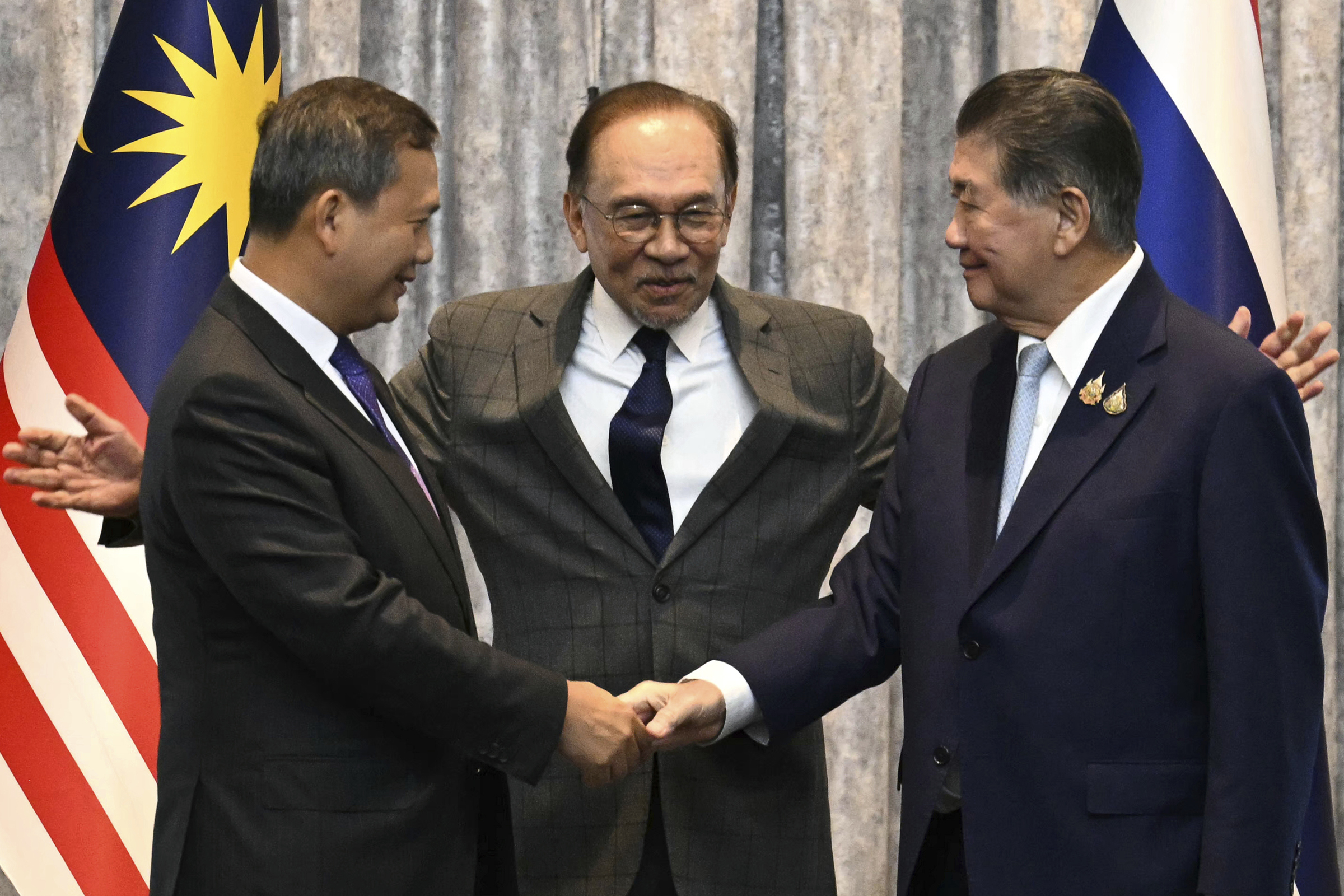 |
Cambodian prime minister Hun Manet (left), Malaysian prime minister Anwar Ibrahim (center), and acting Thai prime minister Phumtham Wechayachai (right) at a press conference on 28/7. Photo: AP |
Cambodian prime minister Hun Manet (left), Malaysian prime minister Anwar Ibrahim (center), and acting Thai prime minister Phumtham Wechayachai (right) at a press conference on 28/7. Photo: AP
However, observers note that implementing the ceasefire will be challenging due to ASEAN's limited enforcement tools. Thailand reported continued fighting at some border points after midnight on 29/7, while Cambodia claimed the situation had calmed.
"The ceasefire is a temporary solution. Maintaining long-term peace and resolving the border dispute is crucial," commented Abdul Rahman Yaacob, a researcher at the Lowy Institute. "Deploying Malaysian or ASEAN observers to the border is a viable mechanism, especially given the eroded strategic trust between Thailand and Cambodia."
Nhu Tam (According to Strait Times, Bernama, The Star)





